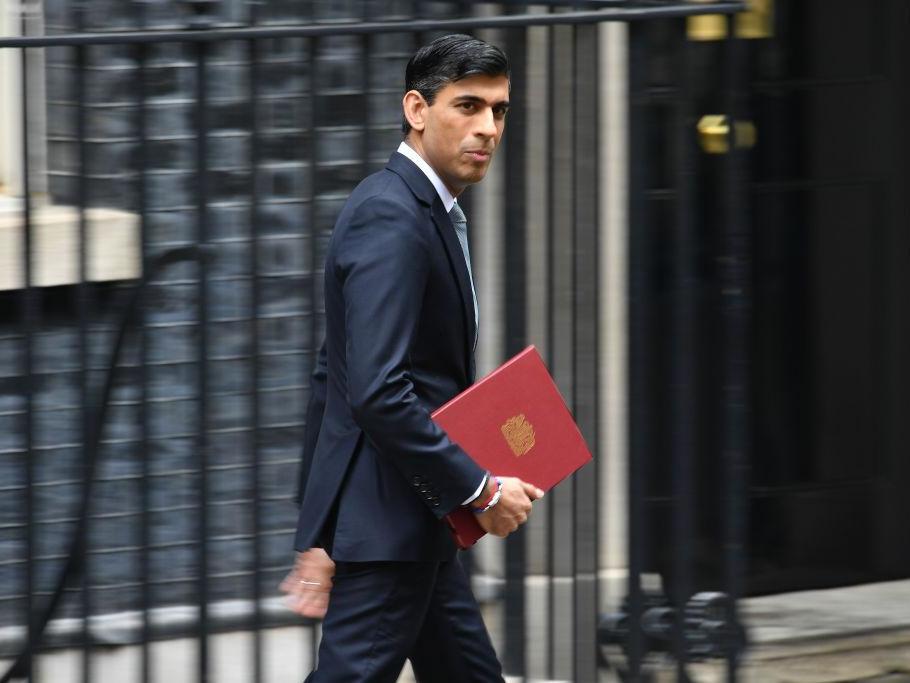Coronavirus: Treasury considering tax hikes to pay for pandemic response, reports say
Capital gains and corporation tax, along with pension tax relief, all reportedly in crosshairs

Your support helps us to tell the story
From reproductive rights to climate change to Big Tech, The Independent is on the ground when the story is developing. Whether it's investigating the financials of Elon Musk's pro-Trump PAC or producing our latest documentary, 'The A Word', which shines a light on the American women fighting for reproductive rights, we know how important it is to parse out the facts from the messaging.
At such a critical moment in US history, we need reporters on the ground. Your donation allows us to keep sending journalists to speak to both sides of the story.
The Independent is trusted by Americans across the entire political spectrum. And unlike many other quality news outlets, we choose not to lock Americans out of our reporting and analysis with paywalls. We believe quality journalism should be available to everyone, paid for by those who can afford it.
Your support makes all the difference.Tax hikes of up to £20bn are being considered by the Treasury to deal with the cost of the coronavirus crisis.
Ministers are looking at raising capital gains tax and corporation tax in the November Budget, according to The Sunday Times.
The money could be clawed back from pensions, businesses, the wealthy, and foreign aid, the newspaper said.
Chancellor Rishi Sunak is considering hiking corporation tax from 19 per cent to 24 per cent in order to boost revenue by £12bn next year, the report indicated.
Capital gains tax might also be paid at the same rate as income tax, under the ideas being looked at.
Pension tax relief could also be “slashed” under measures being considered by the Treasury to help pay for the Covid-19 crisis, The Sunday Telegraph reported.
The newspaper also said that raising fuel and other duties was also being looked at.
A revamp of the inheritance tax system and the introduction of an online sales tax was also being considered.
The international development budget could also be caught up in Treasury reappraisals due to the cost of the pandemic, it was claimed.
The aid budget has already been cut by £2.9bn from £15.8bn this year, due to the contraction in the economy caused by the Covid-19 outbreak.
However, the government insists it still meets its obligation to provide 0.7 per cent of gross national income (GNI) to international development.
Treasury sources told the PA news agency that they do not comment on what may, or may not be, in the upcoming Budget.
Adam Marshall, the director general of the British Chambers of Commerce, said he was "very concerned" by reports the Treasury is considering a rise in corporation tax.
Dr Marshall told Times Radio: "I very much hope that this is the Treasury flying kites rather than settling policy, because we do not want to make a choice between a strong recovery with lots of investment and risk-taking by businesspeople or a short-term repair of the public finances.
"We've got to give the recovery space to build and grow. If the Treasury snaps back to orthodoxy immediately it would be a really damaging mistake.
If the Treasury piles taxes onto businesses, "you tell them that it's not a good environment to invest in, it's not a good environment to take a risk, you will hamstring the recovery", he warned.
"So let's nurture the embers of that recovery first and then repair the public finances, not get them the wrong way around."
Former work and pensions secretary Damian Green said that he would not to see the triple-lock protection on pensions dropped.
"I would be very wary of the government going down that route. It was a manifesto commitment to keep it," Mr Green told Times Radio. "I wouldn't do it.
"The other one on that list that I particularly wince at is the thought of breaking the commitment on foreign aid. I'm proud of the fact that Britain is one of the few countries that meets its commitment to have a small part - 0.7 per cent - of our GDP spent on foreign aid and I would certainly want to see that continued."
Mr Green, who was effective deputy prime minister to Theresa May and now heads the One-Nation Conservative caucus in Westminster, said: "I think this raft of things... feels like a standard pre-Budget Treasury kite-flying to see what people will make of this.
"Clearly the Chancellor faces some unpalatable options because he's rightly spent many many billions of pounds supporting the economy and individual workers over the past few months."
Press Association
Join our commenting forum
Join thought-provoking conversations, follow other Independent readers and see their replies
Comments